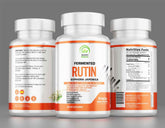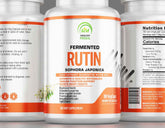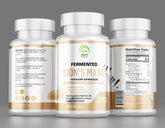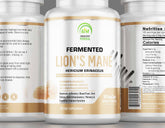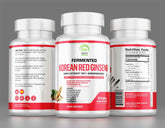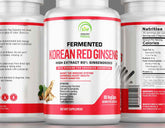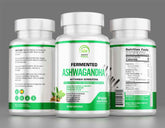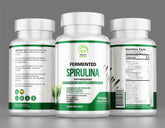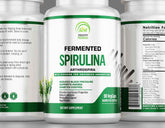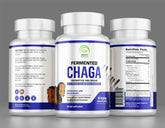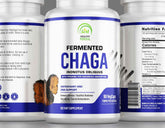Filter
9 results
20
- 10
- 15
- 20
- 25
- 30
- 50
Best selling
- Featured
- Best selling
- Alphabetically, A-Z
- Alphabetically, Z-A
- Price, low to high
- Price, high to low
- Date, old to new
- Date, new to old
Sort
Sort by:
- Featured
- Best selling
- Alphabetically, A-Z
- Alphabetically, Z-A
- Price, low to high
- Price, high to low
- Date, old to new
- Date, new to old
-
Turmeric - Curcumin
The Surprising Health Benefits of Turmeric or Curcumin Turmeric, also known as curcumin, is a great spice to cook with. But it’s also more than that because it offers a range of impressive health benefits. Today, we will explore those benefits so you can...- €30,00
€36,00- €30,00
- Unit price
- / per
-
Lion's Mane - Hericium Erinaceus
Unveiling the Wonders of Lion's Mane: Your Guide to Benefits, Buying, and More In the realm of natural wonders, few treasures rival the extraordinary Lion's Mane mushroom. Known for its unique appearance resembling the mane of a lion and its remarkable health benefits, this...- €28,00
€36,00- €28,00
- Unit price
- / per
-
Rutin - Sophora Japonica
Understanding Rutin - Sophora Japonica and Its Benefits Sophora japonica, also known as the Japanese pagoda tree, is native to eastern China and Japan. It has beautiful white flowers, but its beauty is not the only interesting thing about it. Sophora japonica extract such...- €35,00
€39,00- €35,00
- Unit price
- / per
-
Korean Red Ginseng
Korean Red Ginseng: Why You Should Add It to Your Diet If you’re working on boosting your health, adding superfoods to your diet is a great way to do that. Korean red ginseng is one of them and today we will explore the benefits...- €25,00
€32,00- €25,00
- Unit price
- / per
-
Ashwagandha - Withania Somnifera
Ashwagandha: What Are the Benefits and How to Use It Ashwagandha has been used for hundreds of years for medicinal purposes. Today, taking an ashwagandha supplement is the easiest way to enjoy the benefits. If you’re interested in ashwagandha capsules, it’s important to learn...- €35,00
€0,00- €35,00
- Unit price
- / per
-
Spirulina - Arthrospira
Spirulina: The Top Benefits of the Popular Superfood Spirulina is one of the most popular superfoods out there and a lot of people have integrated it into their diet. Spirulina powder is quite a common ingredient in green smoothies (and other kinds), but spirulina...- €15,00
€22,00- €15,00
- Unit price
- / per
-
Amla - Phyllanthus Emblica
Everything You Should Know About Amla Amla is known as a superfruit and it has gained a lot of popularity in recent years. Whether you’ve heard about it before or not, learning more about the Indian gooseberry will introduce you to a powerful ingredient...- €20,00
€0,00- €20,00
- Unit price
- / per
-
Irish Sea Moss - Bladderwrack - Burdock Root
Sea Moss or Irish Sea Moss: Benefits and How to Combine It with Bladderwrack Sea moss, also known as Irish sea moss, is something you’ve probably heard about before. It’s often mentioned alongside bladderwrack because they make a powerful duo. Today, we will explore...- €25,00
€30,00- €25,00
- Unit price
- / per
-
Chaga - Inonotus obliquus
The Powerful Benefits of Chaga Mushroom Chaga mushrooms are not as well known as, say, shiitake or portobello mushrooms, but they’re amazing. Organic chaga fungus offers a lot of different health benefits you’ll want to be familiar with. So, in this article, we will...- €25,00
€31,00- €25,00
- Unit price
- / per




